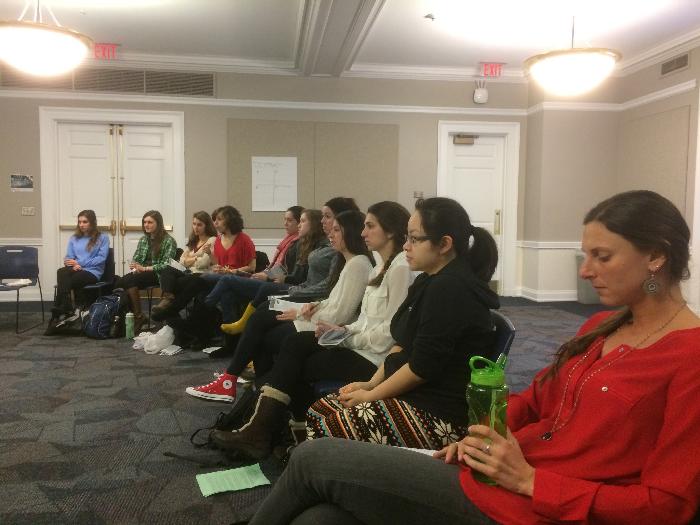In addition, we discussed how “checking in” or monitoring a situation while out on a Friday night does not suggest a negative assumption regarding the personality of the participants – rather, this intervention represents our responsibility to create a Community of Care, in addition to upholding the Community of Trust we all value so highly. We learned that the three D’s of intervention are: (1) Direct: check on individuals involved; (2) Delegate: get someone else to step in; (3) Distract: create a diversion to diffuse the situation.
The Overview Talk was personal for me, as I am active in the sexual assault advocacy community through Take Back the Night, and one of my undergraduate majors, Women’s Studies. The main objective of Green Dot is to encourage students to proactively, and retroactively as needed, diffuse Red Dot situations and eliminate the social acceptance of Red Dot behaviors. Looking at a map of Grounds filled with green dots superimposed onto red dots, I found myself feeling thankful for the positive, safe environment provided by Hillel staff at the Brody Jewish Center. Next steps include extending this feeling of community and safety to all of Grounds. I realize now, as a fourth year, how integral the wonderful, secure community of Hillel has been for me throughout college. Moving forward, I hope you will keep an eye out – we will host a separate Ask Big Questions discussion on the intersection of Judaism, communal responsibility, and bystander intervention on Grounds later this semester! Haley Swartz Class of 2015 Comments are closed.
|
The Brody Jewish Center, Hillel at the University of Virginia, is the focal point in a renaissance of Jewish life for the 1,000 Jewish students on Grounds. Archives
September 2021
Categories
All
|

 RSS Feed
RSS Feed